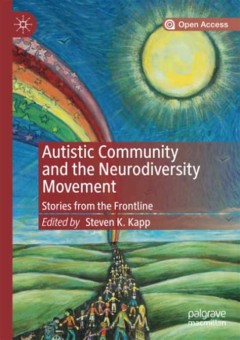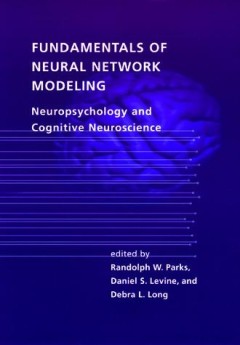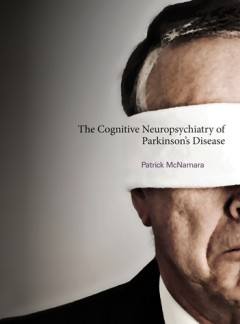Filter by

Advances in the Preclinical Study of Ischemic Stroke
This book reports innovations in the preclinical study of stroke, including - novel tools and findings in animal models of stroke, - novel biochemical mechanisms through which ischemic damage may be both generated and limited, - novel pathways to neuroprotection. Although hypothermia has been so far the sole "neuroprotection" treatment that has survived the translation from preclinical to clini…
- Edition
- -
- ISBN/ISSN
- 9789535102908
- Collation
- oer.unej.ac.id
- Series Title
- -
- Call Number
- -

International Perspectives in Values-Based Mental Health Practice = Case Stud…
This open access book offers essential information on values-based practice (VBP): the clinical skills involved, teamwork and person-centered care, links between values and evidence, and the importance of partnerships in shared decision-making. Different cultures have different values; for example, partnership in decision-making looks very different, from the highly individualized perspective o…
- Edition
- 1
- ISBN/ISSN
- 9783030478520
- Collation
- XVIII, 436 hlm; ill., lamp.,
- Series Title
- -
- Call Number
- -

Functional Somatic Symptoms in Children and Adolescents = A Stress-System App…
This open access book sets out the stress-system model for functional somatic symptoms in children and adolescents. The book begins by exploring the initial encounter between the paediatrician, child, and family, moves through the assessment process, including the formulation and the treatment contract, and then describes the various forms of treatment that are designed to settle the child’s …
- Edition
- 1
- ISBN/ISSN
- 9783030461843
- Collation
- XXXI, 383 hlm; ill., lamp.,
- Series Title
- -
- Call Number
- -

Gute Kinderschutzverfahren: Tatsachenwissenschaftliche Grundlagen, rechtliche…
In Kinderschutzfällen ist es Aufgabe der Jugendämter und Familiengerichte, im Raum stehende Kindeswohlgefährdungen einzuschätzen und gegebenenfalls durch geeignete Hilfen und Maßnahmen abzuwenden. Diese Einschätzungen und Entscheidungen können den weiteren Lebensweg von Kindern und ihren Eltern stark beeinträchtigen. Umso wichtiger ist es, dass die an familiengerichtlichen Kinderschutzv…
- Edition
- 1
- ISBN/ISSN
- 978-3-662-66900-6
- Collation
- XIV, 664
- Series Title
- -
- Call Number
- -

Autistic Community and the Neurodiversity Movement : Stories from the Frontline
This open access book marks the first historical overview of the autism rights branch of the neurodiversity movement, describing the activities and rationales of key leaders in their own words since it organized into a unique community in 1992. Sandwiched by editorial chapters that include critical analysis, the book contains 19 chapters by 21 authors about the forming of the autistic community…
- Edition
- 1
- ISBN/ISSN
- 9789811384370
- Collation
- XIX, 330 hlm,: ill, lamp;
- Series Title
- -
- Call Number
- -

Micro-, Meso- and Macro-Dynamics of the Brain
This book brings together leading investigators who represent various aspects of brain dynamics with the goal of presenting state-of-the-art current progress and address future developments. The individual chapters cover several fascinating facets of contemporary neuroscience from elementary computation of neurons, mesoscopic network oscillations, internally generated assembly sequences in th…
- Edition
- 1st Edition
- ISBN/ISSN
- 9783319288024
- Collation
- XIII, 172
- Series Title
- -
- Call Number
- -

Extraordinary science and psychiatry :responses to the crisis in mental healt…
Leading scholars offer perspectives from the philosophy of science on the crisis in psychiatric research that exploded after the publication of DSM-5."Psychiatry and mental health research is in crisis, with tensions between psychiatry's clinical and research aims and controversies over diagnosis, treatment, and scientific constructs for studying mental disorders. At the center of these controv…
- Edition
- -
- ISBN/ISSN
- 9780262341752
- Collation
- 1 online resource (viii, 327 pages).
- Series Title
- -
- Call Number
- -

Fundamentals of neural network modeling : neuropsychology and cognitive neuro…
Over the past few years, computer modeling has become more prevalent in the clinical sciences as an alternative to traditional symbol-processing models. This book provides an introduction to the neural network modeling of complex cognitive and neuropsychological processes. It is intended to make the neural network approach accessible to practicing neuropsychologists, psychologists, neurologists…
- Edition
- -
- ISBN/ISSN
- 0585108358
- Collation
- 1 online resource (xiii, 428 pages) : illustrations.
- Series Title
- -
- Call Number
- 001 FUN

Rebel Genius: Warren S. McCulloch's Transdisciplinary Life in Science
"The book is a scientific biography of American neurophysiologist and cybernetician Warren S. McCulloch, one that places his life and work in historical context. By focusing on the various identities that he assumed throughout his life's major work--the study of the brain and mind--the book examines the intermingling of McCulloch's professional and personal worlds, and by doing so provides a mu…
- Edition
- -
- ISBN/ISSN
- 9780262335386
- Collation
- 1 online resource (xiii, 305 pages) :illustrations
- Series Title
- -
- Call Number
- -

The Cognitive Neuropsychiatry of Parkinson's Disease
Patrick McNamara examines the major neuropsychiatric syndromes of Parkinson's disease in detail and offers a cognitive theory that accounts for both their neurology and their phenomenology.OCLC-licensed vendor bibliographic record.
- Edition
- -
- ISBN/ISSN
- 9780262298360
- Collation
- 1 online resource (x, 231 pages) :illustrations
- Series Title
- -
- Call Number
- -
 Computer Science, Information & General Works
Computer Science, Information & General Works  Philosophy & Psychology
Philosophy & Psychology  Religion
Religion  Social Sciences
Social Sciences  Language
Language  Pure Science
Pure Science  Applied Sciences
Applied Sciences  Art & Recreation
Art & Recreation  Literature
Literature  History & Geography
History & Geography